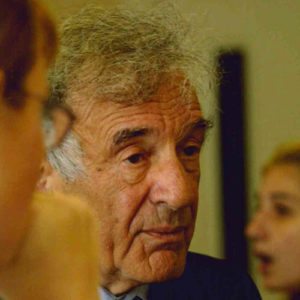The first thing I always think of about Dr. Wiesel is how unlikely it was to have had that experience. Few people get to meet such individuals, but fewer still get the opportunity to have conversations with them! Since I left college, I realized how few of my peers at other, larger universities even had the experience of being in a seminar at all!
I recall being very intimidated on the first day and thinking, OK, I’m not going to be able to skim any of the readings for this class. … As the first week went on, I think folks in the class got more comfortable with him and with each other. Dr. Wiesel proved to be incredibly patient and kind. He would thoughtfully listen and respond to everyone’s ideas no matter how inane we thought him or her to be. He gave his students’ thinking a lot of respect, and this elevated the dialogue.
I think the experience in his seminar really made me more serious about my own studies at the time. It also served as a high-water mark for me in how we can respect and elevate each other as human beings through honest and open conversation, even if our frames of reference are very different. We share a common humanity, which creates opportunity to build understanding. This still feels like something of a secret weapon to me—a useful tool to help navigate contentious social and political debate in 2016—and I am grateful to have internalized this lesson. I still have the copy of Dr. Wiesel’s memoirs that we read in class, All Rivers Run to the Sea. He signed it, and I love what he wrote in mine: “To Luc—Whose quest for knowledge is instinct.” That may be true now, and I’m pretty sure Dr. Wiesel had something to do with inspiring it.
—Luke Rainey ’07


